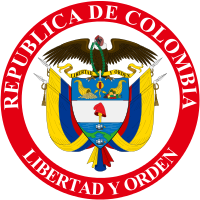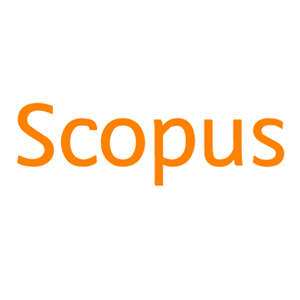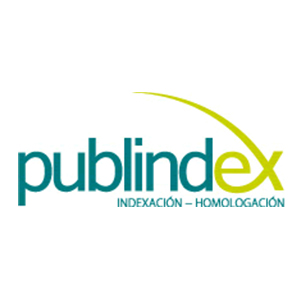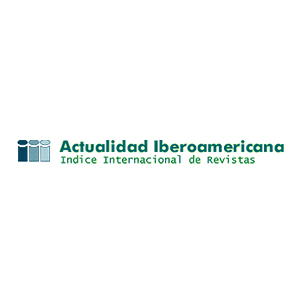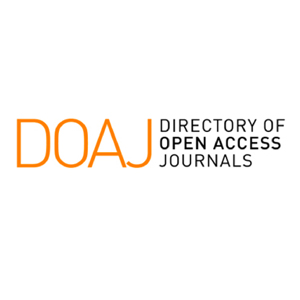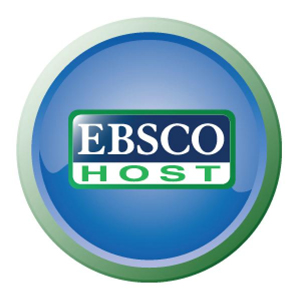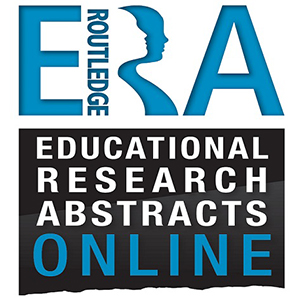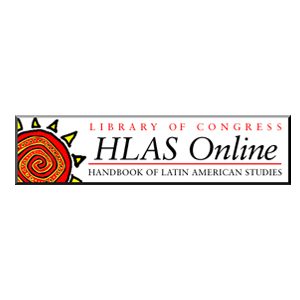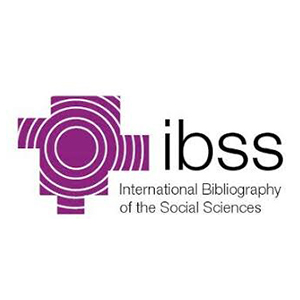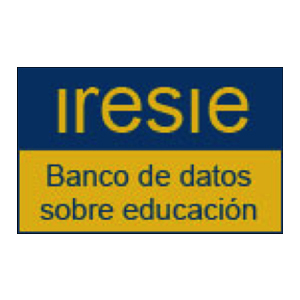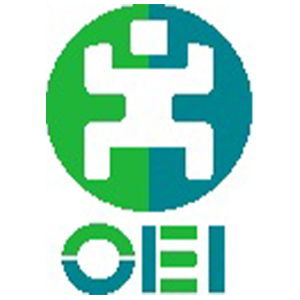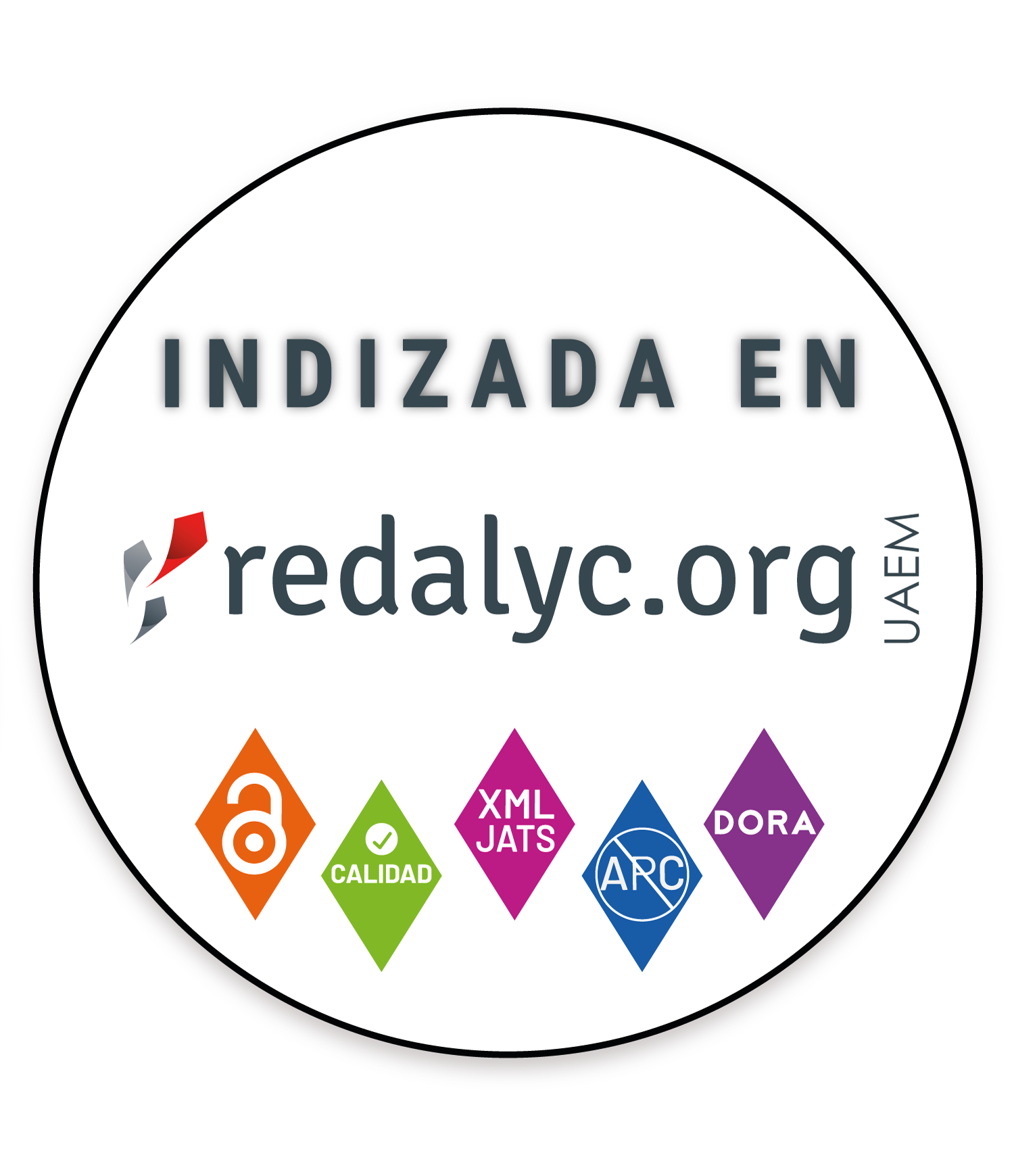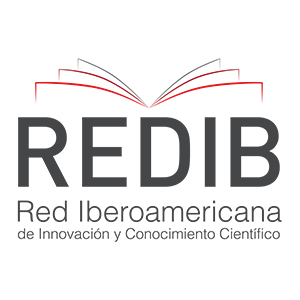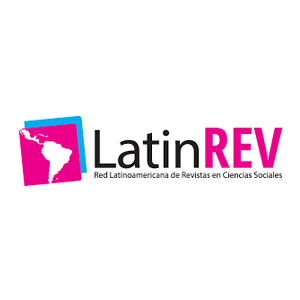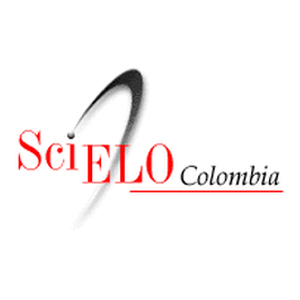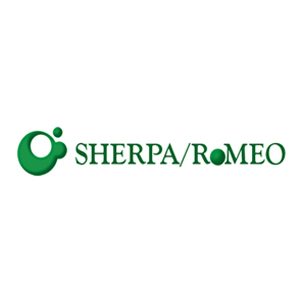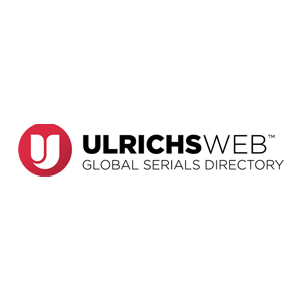La construcción de la identidad docente del profesor de Español como lengua extranjera: el conocimiento en el proceso de identificación docente
The Construction of the Spanish as a Foreign Language Teacher Identity: Teacher Knowledge in the Process of Teaching Identification
A construção da identidade docente do professor de Espanhol como Língua Estrangeira: o conhecimento no processo de identificação docente
Favorecer la creación de una identidad docente desde la formación inicial y desde los procesos de construcción de conocimiento que los programas de formación facilitan, resulta crucial para el futuro profesor y su desarrollo profesional continuo. El presente artículo analiza la evolución de la identidad docente de 22 profesores de Español como Lengua Extranjera en formación inicial, y el rol que la construcción del conocimiento del profesor tiene en dicho proceso durante una secuencia de actividades reflexivas basadas en el microteaching o microenseñanza. La investigación presentada en este texto es de índole cualitativo y de enfoque etnográfico, basándose en el análisis de 44 reflexiones escritas y 161 intervenciones de los participantes en foros de discusión, las cuales giran alrededor de las grabaciones llevadas a cabo en la secuencia de microenseñanza. Los resultados apuntan a que dicha secuencia favorece la reflexión individual y compartida en los futuros profesores, además de un proceso de evolución de las autopercepciones como profesionales. El conocimiento pedagógico es el que tiene el mayor peso en el desarrollo de estas primeras construcciones de identidad docente, mientras que el conocimiento práctico y el de la materia pierden importancia a medida que los profesores comienzan a experimentar en el aula.
formación de profesores, enseñanza reflexiva, identidad profesional, desarrollo profesional (es)
formação de professores, ensino reflexivo, identidade profissional, desenvolvimento profissional (pt)
Alonso Sáez, I., Lobato Fraile, C. y Arandia Loroño, M. (2015). La identidad profesional docente como clave para el cambio en la educación superior. Opción, 31(5), 51-74. https://www.redalyc.org/articulo.oa?id=31045570004
Andrews, S. (2003). Teacher Language Awareness and the Professional Knowledge Base of the L2 Teacher. Language Awareness, 12(2), 81-95. doi: 0965-8416/03/02 081-15 DOI: https://doi.org/10.1080/09658410308667068
Barkhuizen, G. (Ed.). (2017). Reflections on Language Teacher Identity Research. Taylor & Francis. DOI: https://doi.org/10.4324/9781315643465
Batlle, J. (2016). An interview with Paul Seedhouse on Video Enhanced Observation (VEO): A new tool for teacher training, professional development and classroom research. Bellaterra Journal of Teaching & Learning Language & Literature, 9(3), 90-97. Recuperado de: http://revistes.uab.cat/jtl3/article/view/v9-n3-battle DOI: https://doi.org/10.5565/rev/jtl3.687
Batlle, J., Cuesta, A. y González, M.V. (2020). El microteaching como secuencia didáctica: inicios de los procesos reflexivos en la formación de los profesores de ELE. e-SEDL, 3, 62-63. https://cvc.cervantes.es/literatura/esedll/pdf/03/05.pdf
Beauchamp, C. y Thomas, L. (2009). Understanding teacher identity: An overview of issues in the literature and implications for teacher education. Cambridge Journal of Education, 39, 175–189. doi:10.1080/03057640902902252 DOI: https://doi.org/10.1080/03057640902902252
Beijaard, D., Meijer, P.C. y Verloop, N. (2004). Reconsidering research on teachers professional identity. Teaching and teacher education, 20(2), 107-128. doi:10.1016/j.tate.2003.07.001 DOI: https://doi.org/10.1016/j.tate.2003.07.001
Block, D. (2015). Becoming a language teacher: Constraints and negotiation in the emergence of new identities. Bellaterra Journal of Teaching and Learning Language and Literature, 8(3), 9-26. doi: http://dx.doi.org/10.5565/rev/jtl3.648 DOI: https://doi.org/10.5565/rev/jtl3.648
Borg, S. (2003). Teacher cognition in language teaching: A review of research on what language teachers think, know, believe, and do. Language Teaching, 36(2), 81–109. doi: 10.1017/S0261444803001903 DOI: https://doi.org/10.1017/S0261444803001903
Carter, K. (1990). Teachers’ knowledge and learning to teach. En W. R. Houston (Ed.), Handbook of research on teacher education (pp. 291–310). New York: MacMillan.
Creswell, J.W. (2007). Qualitative Inquiry & Research design. Choosing Among Five Approaches. Thousand Oaks: SAGE.
Farr, F., Farrell, A. y Riordan, E. (2019). Social Interaction in Language Teacher Education. Edinburgh University Press. DOI: https://doi.org/10.1515/9781474412636
Farrell, T.S.C. (2007). Reflective Language Teaching. From research to practice. Continuum.
Farrell, T.S.C. (2018). Research on Reflective Practice in TESOL. Routledge. DOI: https://doi.org/10.4324/9781315206332
Fernández, M.L. (2010). Investigating how and what prospective teachers learn through microteaching lesson study. Teaching and Teacher Education, 26, 351–362. doi:10.1016/j.tate.2009.09.012 DOI: https://doi.org/10.1016/j.tate.2009.09.012
Gray, J. y Morton, T. (2018). Social Interaction and English Language Teacher Identity. Edinburgh University Press. DOI: https://doi.org/10.1515/9780748656127
Kayi-Aydar, H. (2019). Language Teacher Identity. Language teaching, 52, 281-295. doi:10.1017/S0261444819000223. DOI: https://doi.org/10.1017/S0261444819000223
Korthagen, F. A. J. (2001). Linking Practice and Theory. The Pedagogy of Realistic Teacher Education. Lawrence Erlbaum Associates. DOI: https://doi.org/10.4324/9781410600523
Kumaravadivelu, B. (2012). Language teacher education for a global society: A modular model for knowing, analyzing, recognizing, doing and seeing. Routledge.
Mann, S. y Walsh, S. (2017). Reflective Practice in English Language Teaching.Research Based Principles and Practices. Routledge. DOI: https://doi.org/10.4324/9781315733395
Monereo, C. y Domínguez, C. (2014). La identidad docente de los profesores universitarios competentes. Educación XX1, 17(2), 83-104. doi: 10.5944/educxx1.17.2.11480 DOI: https://doi.org/10.5944/educxx1.17.2.11480
Morgan, B. y Clarke, M. (2011). Identity in second language teaching and learning. En E. Hinkel (Ed.), Handbook of research in second language teaching and learning, 2 (pp. 817–836). Routledge/Taylor & Francis.
Pennington, M. y Richards, J.C. (2016). Teacher identity in Language Teaching: Integrating Personal, Contextual, and Professional Factors. RELC Journal, 47(1), 5-23. DOI: https://doi.org/10.1177/0033688216631219
Shulman, L. (1986). Those who understand knowledge growth in teaching. Educational researcher, 15(2), 4-14. https://www.jstor.org/stable/1175860 DOI: https://doi.org/10.3102/0013189X015002004
Schön, D.A. (1983). The reflective practitioner: How professionals think in action. Basic Books.
Schön, D. A. (1987). Educating the reflective practitioner. Jossey- Bass Publishing.
Supasiraprapa, S. y De Costa, P. I. (2017). Metadiscourse and Identity Construction in Teaching Philosophy Statements: A Critical Case Study of Two MATESOL Students. TESOL Quarterly, 51(4), 868-896. DOI: https://doi.org/10.1002/tesq.360
Tsui, A. (2012). The dialectics of theory and Practice in Teacher Knowledge Development. En Hüttner, J., Mehlmahuer-larcher, B., Reichl, S. & Schniftner, B. (Eds.).Theory and Practice in EFL Teacher Education. Bridging the Gap (pp.16-37). Multilingual Matters. DOI: https://doi.org/10.21832/9781847695260-005
Varghese, M.M., Motha, S., Park, G. Reeves, J y Trent, J. (2016). In this issue. En Varghese, M.M. et al. (Eds.) Language teacher identity in (Multi) lingual educational contexts, TESOL Quarterly, 50(3), 547-571. DOI: https://doi.org/10.1002/tesq.333
Verloop, N., van Driel, J. y Meijer, P. (2001). Teacher knowledge and the knowledge base of teaching. International journal of educational research, 35(5), 441-461.doi: 10.1016/S0883-0355(02)00003-4 DOI: https://doi.org/10.1016/S0883-0355(02)00003-4
Vloet, K. (2009). Career learning and teachers’ professional identity: Narrative in dialogue. En M. Kuijpers & F. Meijers (Eds). Career learning. Research and practice in education (pp. 69-84). Euroguidance.
Wallace, M. (1991). Training Foreign Language Teachers. CUP.
Wenger, E. (1998). Communities of practice. Cambridge University Press. DOI: https://doi.org/10.1017/CBO9780511803932
Wyatt, M. (2009). Practical knowledge growth in communicative language teaching. TESL-EJ, 13(2), 1-23. http://www.tesl-ej.org/wordpress/issues/volume13/ej50/ej50a2/
Yazan, B. (2018). A Conceptual Framework to Understand Language Teacher Identities. Journal of Second Language Teacher Education, 1(1), 21-48. DOI: https://doi.org/10.1558/slte.24908
Yazan, B. & Lindahl, K. (Eds). (2020). Language Teacher Identity in TESOL: Teacher Education and Practice as Identity Work. Routledge. DOI: https://doi.org/10.4324/9780429342875
APA
ACM
ACS
ABNT
Chicago
Harvard
IEEE
MLA
Turabian
Vancouver
Descargar cita
Citaciones

Métricas PlumX
Visitas
Descargas
Recibido: 17 de diciembre de 2020; Aceptado: 25 de marzo de 2021
Resumen
Favorecer la creación de una identidad docente desde la formación inicial y desde los procesos de construcción de conocimiento que los programas de formación facilitan, resulta crucial para el futuro profesor y su desarrollo profesional continuo. El presente artículo analiza la evolución de la identidad docente de 22 profesores de Español como Lengua Extranjera en formación inicial, y el rol que la construcción del conocimiento del profesor tiene en dicho proceso durante una secuencia de actividades reflexivas basadas en el microteaching o microenseñanza. La investigación presentada en este texto es de índole cualitativo y de enfoque etnográfico, basándose en el análisis de 44 reflexiones escritas y 161 intervenciones de los participantes en foros de discusión, las cuales giran alrededor de las grabaciones llevadas a cabo en la secuencia de microenseñanza. Los resultados apuntan a que dicha secuencia favorece la reflexión individual y compartida en los futuros profesores, además de un proceso de evolución de las autopercepciones como profesionales. El conocimiento pedagógico es el que tiene el mayor peso en el desarrollo de estas primeras construcciones de identidad docente, mientras que el conocimiento práctico y el de la materia pierden importancia a medida que los profesores comienzan a experimentar en el aula.
Palabras clave:
formación de profesores, enseñanza reflexiva, identidad profesional, desarrollo profesional.Abstract
The creation and development of a teaching identity, linked to processes of teacher knowledge construction, constitutes the main aim of teacher training programs, as both seem crucial for the prospective teacher and their profesional development. This paper analyzes the evolution of the teacher identity of 22 preservice teachers of Spanish as a Foreign Language and the role that teaching knowledge plays in these processes through reflective activities based on microteaching. The results have shown that microteaching activities supported self- and joint reflection among the prospective teachers, and additionally, they triggered an ongoing process in the construction of their self-perceptions as language teachers during the intervention. Pedagogical content knowledge was found the most relevant in the development of these first constructions, whereas practical and subject matter content knowledge loses relevance as student teachers gain classroom experience.
Keywords:
teacher education, reflective teaching, professional identity, microteaching, profesional development..Resumo
A qualidade da Educação constitui um compromisso e um dever com o sistema escolar; isso exige atenção especial à Formação Inicial Docente dos nossos professores. Atualmente, as Políticas Públicas no Chile desafiam às Universidades em termos de vários requisitos para a Formação de Professores. Conscientes dessa situação, as universidades têm implantado estratégias para aprimorar os processos de formação de seus futuros professores, estabelecendo mecanismos formais que articulam seu currículo com a formação baseada na Prática. Este artigo expõe os resultados de uma pesquisa qualitativa, que analisa o processo de prática das carreiras de pedagogia de uma universidade privada no Chile, descrevendo, por sua vez, os nós críticos dos processos formativos que o caracterizam. O estudo contemplou um desenho etno-metodológico, com a participação de 37 professores tutores de estágio e três coordenadores, por meio de um focus group. A abordagem da informação coletada contemplou uma análise do discurso por meio da ferramenta Atlasti. Os resultados do estudo evidenciam a necessidade de repensar a prática na formação inicial de professores por meio de um modelo que represente e responda às demandas da sociedade do século XXI, juntamente com a valorização do ato reflexivo dentro da Academia que nutre e fortalece a formação inicial de docente.
Palavras-chave:
formação de professores, ensino reflexivo, identidade profissional, desenvolvimento profissional.Introducción
La formación de profesores ha experimentado en los últimos años cambios sustanciales en la comprensión de cómo los futuros profesores deben enfrentarse a la realidad del aula en su proceso formativo. La profesión docente ha pasado a verse como algo en lo que “uno se convierte” gracias a la formación y a la experiencia profesional, entendidas ambas como procesos de adquisición de las prácticas sociales, las competencias propias de la profesión y los valores profesionales del grupo (Alonso et al., 2015, p. 53). Esta construcción de la identidad profesional define, en mayor o menor medida, el aprendizaje y el pensamiento del profesor, sus prácticas y, en definitiva, el desarrollo profesional del docente (Yazan, 2018, p. 21). En este proceso de socialización profesional docente los programas de formación de profesores de lenguas ejercen una influencia de cuyo impacto, sin embargo, existen aún pocas evidencias (Pennington y Richards, 2016; Farr et al., 2019; Yazan y Lindahl, 2020). En esta línea, resulta primordial que los importantes avances realizados hasta el momento acerca de la identidad del profesor de lenguas extranjeras como marco de investigación (Kayi-Aydar, 2019) pasen a informar y fundamentar las prácticas formativas y a convertirse en una herramienta pedagógica y de intervención (Yazan y Lindahl, 2020).
Los estudios sobre la construcción de la identidad del docente de lenguas extranjeras consideran necesaria una ampliación de las acciones didácticas que permita al profesorado en formación la construcción de su identidad profesional mediante actividades que promuevan la construcción de conocimientos (Beijaard et al., 2004; Farr et al., 2019) y su interrelación con las competencias docentes desarrolladas durante el proceso. Asimismo, en este sentido, actividades como las prácticas docentes o la microenseñanza persiguen ubicar al profesor en una situación de enseñanza que le permita implementar una actividad centrada en un objetivo específico. La práctica reflexiva sustentada en la grabación y observación de estas actividades permite al docente extraer aprendizajes, cimentar y revisitar su conocimiento docente y, a través de la reflexión, construir su propia identidad profesional.
Este estudio tiene como objetivo analizar la evolución de la construcción de la identidad docente de profesores en formación inicial de español como lengua extranjera (ele) a través del análisis de la práctica reflexiva inherente a una serie de actividades en una secuencia de microteaching. Para alcanzar dicho objetivo, se analiza cómo los conocimientos prácticos, los conocimientos de contenido pedagógico y los conocimientos de contenido de la materia emergen en los procesos de identificación docente de los profesores en formación y se examina su evolución durante la secuencia de actividades.
Con este fin, comenzaremos con una aproximación a los conceptos de identidad del docente de lenguas extranjeras y conocimiento del profesor, así como al papel que dicho conocimiento desempeña en la formación de la identidad docente. A continuación, se describirá la metodología llevada a cabo en el estudio y se expondrán las características de la intervención didáctica basada en la microenseñanza. Se finalizará con una exposición del análisis de los datos, así como de las conclusiones del estudio
Marco teórico: la construcción de la identidad docente a través del conocimiento del profesor
La identidad se entiende como un término genérico que engloba las actividades, acciones (Gray y Morton, 2018, p. 14) o procesos de identificación y categorización por los cuales nos situamos como ciertos tipos de personas -tanto como individuos o miembros de un colectivo- y por los que posicionamos a otros (Gray y Morton, 2018, p. 15). Se trata de un proceso de localización y posicionamiento de carácter relacional (Alonso et al., 2015, p. 53) y estrechamente ligado a nociones como la comunalidad, la conexión o la pertenencia al grupo (Gray y Morton, 2018, p. 15). Los docentes “se afilian a diferentes aspectos de la enseñanza” (Block, 2015, p. 13) a través de diversos factores como “los contactos que desarrollan con otros profesores y estudiantes y las tareas en las que se involucran como profesores, y que constituyen la enseñanza” (Block, 2015, p. 13). Mediante dichos procesos, el docente da sentido a la situación social de la enseñanza y a su preparación (Gray y Morton, 2018, p. 15). De este modo, la identidad docente se entiende como un fenómeno procesual que se va adquiriendo a lo largo de la formación y la experiencia profesional.
La identidad docente -de componente no solo cognitivo sino también emocional, social, ideológico e histórico (Barkhuizen, 2017)- se forma a través de un proceso complejo de carácter dinámico (Beijaard et al., 2004; Barkhuizen, 2017), biográfico (Alonso et al., 2015, p. 53) y multifaceta (Vloet, 2009; Barkhuizen, 2017). El proceso se basa en una interpretación y reinterpretación constante de las experiencias del docente que implican una interacción entre la persona y el contexto biográfico, y que son resultado de la interacción entre las experiencias personales de los profesores, las múltiples pertenencias arrastradas y el entorno social, cultural e institucional donde se ejercen las funciones docentes (Pennington y Richards, 2016, p. 6). Asimismo, se trata de un proceso en el que se mantienen varias subidentidades que se interrelacionan y en el que se produce “una negociación constante entre expectativas externas e internas; entre las identidades profesionales […] y las identidades personales […]” (Varghese et al., 2016, p. 548). Por su parte, la construcción de una autoimagen docente, a partir de los procesos de autoconocimiento sobre las propias fortalezas y debilidades a través de la concienciación sobre la propia práctica, constituye una dimensión fundamental de la identidad del profesor de lenguas (Pennington y Richards, 2016, p. 15). En síntesis, parece más adecuado, por tanto, hablar de procesos de identificación profesional docente, de articulación de la identidad o de posicionamiento que de identidad en sí misma (Gray y Morton, 2018, p. 10). Estos procesos dan sentido a una identidad que tiene implicaciones en la forma en la que el profesor aborda la práctica docente (Gray y Morton, 2018; Yazan, 2018; Kayi-Aydar, 2019; Yazan y Lindahl, 2020).
En este marco, desde la perspectiva de la identidad docente como “un lugar potencial de intervención y un área de foco explícito en la preparación del profesor” (Morgan y Clarke, 2011, p. 825), surge una potencial línea de investigación basada en la exploración de la relación entre identidad docente y pedagogía (Morgan, 2004) que destaca el análisis de las relaciones entre las orientaciones identitarias docentes existentes y el desarrollo de los profesores y sus prácticas en el apoyo al aprendizaje. El potencial de este acercamiento es visible no solo mediante la investigación, sino a través del desarrollo de prácticas de formación sin distinciones entre conocimiento e identidad (Gray y Morton, 2018). La exploración y el conocimiento sobre la identidad docente del profesor de lengua extranjera es vital también para comprender cómo los programas de formación de profesores están construidos (Beauchamp y Thomas, 2009, p. 176) y, en ese sentido, se necesita investigación “para examinar cómo la práctica de profesores y los programas de formación de profesores pueden ser cambiados basando su núcleo en el trabajo con la identidad” (Varghese et al., 2016, p. 564). Es necesario que el profesor en formación sepa establecer conexiones entre las clases de su programa formativo y los contextos reales de enseñanza, ya que las primeras son percibidas como “irreales”. Para ello, se ha de diseñar una formación basada en la “interconexión de reflexión, narrativa, identidad e inversión” (Varghese et al., 2016, p. 564), así como de tiempo y dedicación, que promueva el paso del conocimiento teórico o recibido al conocimiento práctico o basado en la experiencia (Wallace, 1991; Korthagen, 2001; Tsui, 2012), con base en la reflexión sobre experiencias o acciones didácticas específicas que, a su vez, permitan volver de la experiencia a la teoría.
La formación de la identidad docente (Beijaard et al., 2004, p. 123) se define como un proceso práctico de construcción de conocimiento caracterizado por una integración en marcha de lo que es individual y colectivamente entendido como relevante para la enseñanza. Por su parte, el conocimiento del profesor de lenguas es un constructo mediante el cual entendemos “una gran variedad de cogniciones” (Verloop et al., 2001, p. 446), etiquetadas por Borg (2003) con el término cognición del profesor y definidas como “la dimensión cognitiva inobservable de la enseñanza” (p. 81). Esta concepto engloba lo que los profesores piensan, saben y creen “en cualquier estadio de sus carreras y en cualquier contexto educativo” (Gray y Morton, 2018, p. 37). Está constituido por creencias, conocimientos, asunciones, teorías, imágenes, metáforas, conceptualizaciones o actitudes que se generan en torno a cualquier aspecto de la profesión sobre la enseñanza (Borg, 2003, p. 82; Tsui, 2003) y que constituyen “un paquete de recursos” que subyace a las actividades de un profesor (Carter, 1990) y sobre las cuales se fundamenta la toma de decisiones de los docentes y sus procesos interpretativos (Gray y Morton, 2018, pp. 37-38). En consecuencia, la cognición del profesor también atañe a la relación que se establece entre estos constructos mentales y aquello que los profesores hacen en el aula (Borg, 2003, p. 81). En la formación de estas cogniciones ejercen una gran influencia las experiencias previas de aprendizaje de la lengua, los procesos formativos del profesor y la práctica docente, y viceversa (Borg, 2003, p. 81).
Los conocimientos del profesor son considerados como elementos que forman un continuum -que son difíciles de separar- (Tsui, 2003; Verloop et al., 2001; Andrews, 2003), así como la naturaleza contextual de su construcción (Tsui, 2003): responden al contexto específico en el que operan y, en este sentido, dicha construcción se produce cuando el docente reflexiona sobre su práctica y su contexto de trabajo. Al mismo tiempo, dichas conceptualizaciones pasan a formar parte del contexto de su práctica y dan forma a dicho contexto en el que el conocimiento es construido (Tsui, 2003, p. 66). En el marco de este estudio, contemplamos tres constructos clave: el conocimiento práctico y la distinción entre el conocimiento de contenido de la materia y el conocimiento de contenido pedagógico.
El conocimiento práctico se define como “aquél que se origina en la práctica y es utilizado para dar sentido y manejar problemas prácticos” (Wyatt, 2009, p. 2). Este conocimiento es “personal, tácito, sistemático y dinámico, toma forma y se refina de forma continua como resultado de las experiencias educativas y profesionales” (Wyatt, 2009, p. 2) de los profesores a lo largo de la vida. Este conocimiento está influido por el conocimiento formal y puede originarse a partir de la escolarización como alumno, de la práctica diaria, de la propia experiencia o de la formación específica para enseñar (Verloop et al., 2001, p. 445), con la posibilidad de ser integrado en la práctica docente (Tsui, 2003, p. 46). Por estos motivos, el conocimiento práctico se entiende al examinar la práctica docente y el pensamiento que hay detrás de ella a través de las historias que dichos profesores desarrollan en su enseñanza, ya que “centra la atención en la acción y en la situación del profesor y en su naturaleza orientada a la decisión [y en] un contexto práctico y social” (Tsui, 2003, p. 46). De esta forma, dicho conocimiento es “construido y reconstruido” (Tsui, 2003, p. 48) mientras los profesores viven, cuentan y reviven sus historias docentes a través de la reflexión. Es, pues, altamente experiencial (Tsui, 2003, p. 45). Por su parte, Wyatt (2009) toma como indicadores del conocimiento práctico la consistencia interna en la forma en que se explicitan o se informan las creencias de la enseñanza y el aprendizaje, la forma en que las creencias se fundamentan en una teoría tanto pública como personal y, finalmente, la sinergia entre las creencias que se reportan y las prácticas del aula (Wyatt, 2009, p. 2). Connelly y Clandinin (1988, p. 25) subrayan la dimensión personal del conocimiento práctico con el término conocimiento práctico personal, puesto que consideran este conocimiento en la medida en que se enmarca en la experiencia y tiene como objetivo responder a la demanda de una situación particular. En este sentido, entre los profesores noveles y sin experiencia, este conocimiento puede manifestarse menos o ser inexistente, a diferencia de los docentes experimentados.
Una última distinción conceptual relevante en los estudios sobre conocimiento del profesor es la de Shulman (1986), que atañe a ladimensión del conocimiento relativa a la materia de enseñanza y el efectoque en la instrucción tiene dicha comprensión. Esta distinción aborda laforma en que el conocimiento de la disciplina se hace comprensible a losestudiantes y cuyas interpretaciones le ayudan a generar explicaciones yrepresentaciones:
Conocimiento del contenido de la materia o la disciplina: hace referencia a los marcos explicativos e interpretativos y los métodos de indagación de la disciplina objeto de enseñanza que influyen en las decisiones curriculares y en cómo se presenta a los estudiantes (Shulman, 1986).
Conocimiento de contenido pedagógico: se trata de las formas de representación de una materia para hacer comprensible el contenido a los estudiantes mediante, por ejemplo, el uso de analogías, ejemplos o ilustraciones (Shulman, 1986). Este conocimiento “representa la combinación del contenido y la pedagogía en la interpretación sobre cómo temas particulares, problemas y cuestiones se organizan, son representados y adaptados a los intereses y habilidades diversos de los estudiantes, y presentados en la instrucción” (Andrews, 2003, p. 87).
Por su parte, el conocimiento pedagógico general se define como el conocimiento de los “principios y habilidades de enseñanza y aprendizaje que son aplicables a través de diferentes materias” (Tsui, 2003, p. 52) y que no son exclusivamente específicos de la materia en cuestión. El conocimiento de contenido pedagógico es central en la construcción de la identidad profesional (Supasiraprapa y Costa, 2017).
La formación de la identidad profesional docente depende de la adquisición de la competencia que permite al profesor reconocerse y ser reconocido como un miembro que funciona plenamente en una comunidad de práctica (Wenger, 1998); la identidad y el conocimiento son realidades indisociables desde esta perspectiva. La necesidad de profundizar, expandir y elaborar el conocimiento del profesor para promover el aprendizaje docente y los cambios en su práctica ya han sido subrayados por las investigaciones realizadas en el marco del desarrollo profesional (Verloop et al., 2001, p. 443). En esta misma línea, parece fundamental en la formación inicial del profesorado la creación de oportunidades para el desarrollo de la identidad del docente mediante la exploración y construcción del conocimiento del profesor a través de diferentes procesos de práctica reflexiva sobre acciones didácticas específicas (Schön, 1983; 1987; Korthagen, 2001; Kumaravadivelu, 2012; Mann y Walsh, 2017; Farrell, 2018): reflexión sobre la acción (Farrell, 2007), reflexión en la acción (Schön, 1983) y reflexión para la acción (Farrell, 2007).
Metodología
Metodología del estudio
Esta investigación se enmarca dentro del paradigma cualitativo y sigue un enfoque de carácter etnográfico coherente con las investigaciones llevadas a cabo en el ámbito de la construcción de la identidad docente. Es por ello que, de acuerdo con Harris (Creswell, 2007, p. 68 ), proponemos un análisis cualitativo en el que se describen e interpretan los patrones compartidos y aprendidos de valores, comportamientos, creencias y lenguaje de los profesores en formación (Monereo y Domínguez, 2014), entendidos estos como un grupo que se incorpora a la cultura docente.
Las categorías de análisis son las que se han presentado en el marco teórico en relación con los estudios de identidad docente (Wenger, 1998; Verloop et al., 2001, p. 443; Beijaard et al., 2004, p. 123), específicamente conocimiento del contenido de la materia (Shulman, 1986), conocimiento pedagógico (Tsui, 2003, p. 52; Supasiraprapa y Costa, 2017, p. 1) y conocimiento práctico (Wyatt, 2009; Tsui, 2003). El análisis de nuestros datos indaga si las reflexiones de los miembros del grupo clase evidencian la configuración de su identidad docente a lo largo de una secuencia didáctica como la del microteaching o microenseñanza. Entendemos la microenseñanza como “una técnica de enseñanza pensada para el desarrollo de la reflexión profesional que se caracteriza por establecer un contexto de entrenamiento en el que una situación de enseñanza se reduce o simplifica sistemáticamente” (Batlle et al., 2020, p. 64). Para ello, se ha llevado a cabo un análisis de las reflexiones que los estudiantes han volcado antes, durante y después de haber realizado dicha secuencia didáctica.
Los participantes en esta investigación exploratoria han sido 22 alumnos del Máster de Formación de Profesores de Español como Lengua Extranjera de la Universidad de Barcelona, que estaban a punto de iniciar sus prácticas curriculares en diferentes escuelas de ele. Sus edades oscilan entre los 22 y 28 años, excepto una participante de 48, y solo 4 cuentan con experiencia previa como profesores de lengua extranjera. Todos son hablantes nativos de español.
El corpus consta de tres tipos de datos, resultado de las actividades llevadas a cabo por los alumnos:
-
20 reflexiones escritas previas a la actividad de microenseñanza.
-
22 reflexiones posteriores a la actividad.
-
161 comentarios que surgieron de la interacción entre los 22 miembros del grupo en la plataforma Video Enhanced Observation (veo) (Batlle, 2016), tras observar los 22 videos en los que registraron su microenseñanza.
Intervención didáctica
La secuencia de microenseñanza se planificó con base en los planteamientos de Fernández (2010) y Batlle et al. (2020), y tuvo en cuenta que se garantizara el desarrollo de las competencias específicas del plan de estudios. Esta se llevó a cabo a lo largo de tres semanas, tal y como puede observarse en la tabla 1.
Fuente: elaboración propia.
Tabla 1: Secuencia de actividades reflexivas basadas en la microenseñanza.
Reflexión para la acción;
Acción
Reflexión sobre la acción
Actividades previas a la microenseñanza.
Microenseñanza.
Actividades posteriores a la microenseñanza.
Reflexión inicial escrita sobre fortalezas y debilidades de la práctica docente personal.
Implementaciones y grabaciones de las secuencias didácticas en el aula.
Reflexión inmediata escrita sobre la microenseñanza con base en la información recogida sobre las percepciones de sus compañeros y la percepción personal inmediata sobre la experiencia.
Construcción inicial de la identidad docente.
Recolección de impresiones inmediatas sobre las secuencias que se acaban de experimentar.
Creación de etiquetas para la observación de la microenseñanza a través de la herramienta veo.
Observación y etiquetado de la microenseñanza con veo: autobservación y heterobservación.
Preparación de una secuencia didáctica (5-10 minutos) que se debía impartir ante sus compañeros.
Práctica reflexiva sobre la observación: comentarios en veo sobre su propia grabación y sobre las grabaciones de sus compañeros que atienden al etiquetado previo.
Resultados
El siguiente análisis indaga en la construcción y desarrollo de la identidad docente de los profesores en formación. Este se establece siguiendo el orden de realización de las actividades reflexivas en la secuencia de microenseñanza. Para ello, trataremos la autopercepción de los participantes antes de la realización de la actividad, identificaremos las diferentes caracterizaciones que se utilizaron para construir su identidad tras la acción de microteaching y, por último, se analizarán qué aspectos fueron destacados de las actuaciones docentes de los otros compañeros en la plataforma VEO.
Identidad docente en las reflexiones previas a la microenseñanza
En las primeras reflexiones de los participantes destaca que cuatro de ellos consideraron positiva su experiencia previa como profesores. No obstante, esta valoración positiva se asocia tanto con cuestiones emocionales como prácticas: la experiencia les otorga confianza y recursos, entendidos como estrategias de gestión de aula, propuestas de actividades o gestión de problemas. Esta idea se observa en la apreciación de Miguel (1):
(1) Aún no me conozco bien como profesor de español, pero sí como docente de otros idiomas, por lo tanto, lo de tener varias experiencias previas en esta área laboral me permite tener más confianza y recursos […] para enfrentarme a una clase, a sus dinámicas relacionales, culturales y didácticas, y a los problemas que conlleva todo esto.
La experiencia práctica se entiende como un aspecto que implica que el profesor en formación ya tenga desarrollado un conocimiento práctico y se asocia con la capacidad de enfrentarse a la realidad docente más que con un determinado conocimiento pedagógico. Los participantes, al valorar su experiencia, destacan el hecho de haberse enfrentado a una realidad similar. De los cuatro profesores con experiencia, dos especifican que esta es en el ámbito de ele, pero indagan poco en su relación con tal realidad pedagógica al presentar sus fortalezas y debilidades.
Las implicaciones del conocimiento del contexto repercuten en un determinado conocimiento pedagógico: por ejemplo, una participante con experiencia indica que ha sido capaz de desarrollar estrategias para gestionar grupos multiculturales. A este respecto, es remarcable que ninguno de los alumnos con experiencia especifique aspectos concretos del contenido de la materia propio del contexto de aprendizaje. Interpretamos que los participantes con experiencia dan más importancia al conocimiento pedagógico que a un determinado conocimiento teórico, tanto de lo que se puede tratar en el aula como sobre teorías propias de las acciones pedagógicas del proceso de enseñanza-aprendizaje de ELE.
El hecho de que el foco de atención esté en la explicitación de fortalezas y debilidades, no obstante, implica que las reflexiones se centren en una comprensión de la identidad docente fundamentada en el conocimiento práctico personal y no tienen en cuenta cuestiones teóricas sobre la impartición de clases de ELE bajo un determinado enfoque.
A modo de ejemplo, observemos cómo David (2) se considera un profesor con cualidades relacionadas con los valores emocionales que todo profesor debe tener: (2) “En primer lugar, diré que poseo ciertas cualidades que, a mi parecer, todo profesor debe tener como innatas: la paciencia, el diálogo, la curiosidad, la empatía, la cercanía, además de ser atento, tolerante y, sobre todo, profesional”.
Los aspectos positivos propios del carácter de un profesor son comprendidos como fortalezas por la mayoría de los participantes. En la misma línea que David (2), otros compañeros se califican como seguros de ellos mismos (Mónica, Raúl, Carmen), con mucha motivación (Agnès, Olivia), o pacientes y empáticos (Miguel, Luis, Juan). Por otro lado, solo dos indagan en aspectos concretos del discurso docente -la habilidad para dar instrucciones, corregir, gestionar el grupo a partir de determinadas acciones discursivas o realizar explicaciones gramaticales-, como puede apreciarse en el comentario de Carla (3) sobre su capacidad de solventar problemas de carácter lingüístico: (3) “Aclarar alguna duda lingüística a los alumnos que inicialmente parezca difícil de entender. Adaptar mi lenguaje al nivel de los alumnos”.
De lo anterior, se desprende que los profesores en formación consideran como un rasgo de la identidad docente tener un conocimiento pedagógico que les permita ser capaces de organizar material o actividades de manera adecuada. El ejemplo que se observaba en (3) mostraba la resolución de dudas de los alumnos como un conocimiento pedagógico propio del docente, considerado un rasgo característico de la identidad docente que, a su vez, se interrelaciona con el conocimiento de la materia. Sin embargo, cuando se especifica información sobre el conocimiento de contenido de la materia, por norma general, se hace para detallarlo como problema. De este hecho se desprende que los participantes se consideran profesores con escaso conocimiento del contenido de la materia para ejercer como docentes adecuadamente. Por ejemplo, Sheila considera que la falta de conocimiento de contenido de la materia puede provocar ansiedad y pérdida de credibilidad:
4) Me preocupa no saber responder a las preguntas de gramática. Sé que un profesor no es una fuente infinita de información que sepa contestar a todas las dudas que plantean los estudiantes, pero es verdad que el desconocimiento sobre los fenómenos lingüísticos de su lengua materna afecta considerablemente a su credibilidad
En consecuencia, del análisis de estas reflexiones iniciales interpretamos que la identidad docente que ellos construyen se fundamenta en una concepción de profesor que mantiene un conocimiento pedagógico basado en aspectos comunicativos concretos y que les permite construir planificaciones didácticas específicas para el contexto de aprendizaje al que se deben enfrentar. Los participantes destacan el conocimiento pedagógico como determinante en la identidad docente por encima de un conocimiento práctico personal, el cual únicamente se observa en los profesores con cierta experiencia. Por el contrario, el conocimiento de contenido de la materia parece poseer menor relevancia en la construcción de su identidad docente y, en consecuencia, está menos presente en sus reflexiones.
Identidad docente en la reflexión inmediata tras la microenseñanza
Tras la sesión de microenseñanza, la construcción de la identidad docente continuó con una reflexión sobre lo ocurrido en esta. Estas reflexiones se clasificaron en dos ámbitos según su contenido: la puesta en práctica de la actividad, la actuación docente y el estado emocional. En la reflexión sobre estos dos últimos aspectos se desarrolla la formación de la identidad docente de los participantes.
En relación con su estado emocional, la mayoría de los comentarios versaron sobre la tranquilidad que mostraban. Cabe destacar que los comentarios siempre surgieron de los observadores y nunca del observado.
Estos comentarios se centran en dos aspectos: la seguridad que muestran y las habilidades comunicativas que mantienen con los alumnos: (5) “La actitud que he adoptado ha resultado buena ante los ojos de los compañeros, así como lo de ser comunicativo y directo”.
La percepción que tienen los participantes de su actuación docente se vincula con los estados que debe mantener un profesor ante su actuación. Observamos en (5) cómo la alumna destaca que sus compañeros la ven con buena actitud, aunque en otras ocasiones se comenta que tal estado tiene repercusiones en la actuación del profesor. Por ejemplo, en (6), observamos cómo Juan comenta que sus compañeros percibieron su nerviosismo y determinaron que ello repercutió en que su discurso no fuera el más apropiado e implicara que las instrucciones no fueran comprendidas por todos.
(6) Los compañeros se han percatado de mi intranquilidad y de mi falta de autoconfianza. El nerviosismo ha sido muy notorio y ha mermado mi naturalidad al hablar, acelerando mi discurso. Dicha rapidez ha sido otro tema cuestionado por los compañeros, puesto que estos juzgan que ha dificultado la comprensión de mis instrucciones.
La actitud de los profesores se asocia con su actuación docente y, por lo tanto, con las acciones propias que determinan la figura del profesor, específicamente con el conocimiento pedagógico que mantienen. Se tiende a asociar las apreciaciones acerca del estado y la actitud de los profesores en formación con una realidad tangible como es la de las acciones propias del docente en el aula. Sin embargo, la gran mayoría de comentarios proporcionados en estas reflexiones que se relacionan con la identidad docente giran en torno al conocimiento pedagógico, con aquellas acciones que determinan la gestión del aula. Tanto observadores como observados repararon en elementos propios del discurso docente, entre ellos, la elaboración de las instrucciones para la realización de las actividades, y valoraron positivamente que estas fueran claras y precisas, que se ejemplificara la actividad, que se indicara el tiempo para su realización, que se propusieran preguntas de comprobación o que se expusieran los objetivos de la actividad. En el caso de no haber realizado alguna de estas acciones discursivas, la actuación docente se valoró negativamente: (7) “Asimismo, se destaca la presencia de unas instrucciones claras y concisas que se corresponden con mi visión del desarrollo de las instrucciones”.
Otros aspectos destacables sobre la construcción del discurso docente son las interacciones llevadas a cabo con los alumnos, el ritmo de habla o el tono de voz utilizados. Se valora la interacción fluida con los alumnos, que se les invite a participar en la clase y que se use un tono de voz comprensible. Sin embargo, se valora negativamente que se hable rápido y en un tono de voz bajo.
La comunicación no verbal (la postura, el uso del espacio, la gesticulación y la mirada) es otro conocimiento pedagógico desarrollado en las reflexiones. Muchos de los profesores en formación destacan la importancia de que los profesores miren a cada alumno y critican que miren hacia la pizarra mientras hablan.
(8) Respecto a mi práctica docente, creo que mi puesta en escena ha sido apropiada al contexto. Una buena muestra era la gesticulación o el tono de voz que llamaban la atención y motivaban a los estudiantes para competir mientras jugaban aprendiendo.
La corrección es otra de las acciones que los participantes especifican como propia del conocimiento pedagógico y se valora como una acción discursiva necesaria. En las reflexiones se observa que el microteaching implica que la corrección se acerque a acciones docentes como la puesta en común o el monitoreo:
(9) En la grabación del microteaching tan solo se pudieron realizar la primera y la segunda parte, durante las cuales llevé a cabo la técnica del monitoreo y me acerqué a cada una de las parejas de alumnos con el objetivo de resolver posibles dudas y/o corregir posibles errores durante sus interacciones o anotaciones. No obstante, creo que el “mayor” ejercicio de corrección debería haber tenido lugar en la tercera parte de la actividad, es decir, durante las presentaciones en clase abierta.
En consecuencia, vemos que la corrección se asocia a momentos determinados dentro de la gestión de la actividad: mientras la realizan o una vez finalizada la acción de los alumnos, en la puesta en común de sus respuestas. Por el contrario, se critica el hecho de no pasear por la clase para realizar las anteriores acciones. Los participantes valoran como un rasgo propio del conocimiento práctico docente el hecho de que el profesor controle qué es lo que hacen los alumnos.
En síntesis, la construcción de la identidad docente se concreta tras la secuencia de microteaching: el análisis de las reflexiones inmediatas determina que los profesores en formación se fijan en cuestiones relacionadas con el conocimiento pedagógico implicado en la identidad docente del profesor. El foco de atención se aleja de la conceptualización de las características del buen profesor desde la perspectiva de su actitud y su estado emocional, y profundiza en el conocimiento pedagógico del profesor. Las reflexiones derivadas de esta secuencia no se fundamentan en el conocimiento práctico personal. El hecho de que sea así se debe a la falta de experiencia de la mayoría de los participantes. En relación con el conocimiento de la materia, solo observamos un comentario y está relacionado con la práctica docente. Carla (10) alude a una acción propia del conocimiento práctico que determina la identidad docente: el monitoreo. Mientras observaba cómo trabajaban los alumnos, uno de ellos formuló una pregunta relacionada con el conocimiento de la materia propia del profesor de ele. Ella recuerda que no respondió adecuadamente, por lo que su reflexión se puede interpretar como una manera de admitir que necesita más formación en este ámbito: (10) “Mientras, en la monitorización, iba viendo qué hacían los alumnos, uno de ellos formuló una pregunta de ortografía que no esperaba: estaba más centrada en su actuación docente. Se quedó indecisa ante esta pregunta y contestó de forma incorrecta”.
En consecuencia, el desarrollo de la identidad docente en este momento de su desarrollo profesional se nutre, mayormente, del conocimiento pedagógico que los profesores en formación están adquiriendo. Interpretamos entonces que el conocimiento de la materia no tiene una implicación directa en el desarrollo de la identidad docente en la reflexión inmediata tras la actividad de microenseñanza, al igual que en la actividad anterior.
Aspectos considerados en los comentarios incorporados en veo
Los comentarios realizados en la plataforma veo se centran en reflexionar sobre la actividad presentada, la actitud del profesor en la acción didáctica y las acciones de este durante la actividad. Como vemos, las reflexiones se han construido a partir de los mismos temas que en la reflexión inmediata y en términos similares. Valoran la actitud en la actuación docente como muy positiva y no se aprecian valoraciones negativas sobre cómo se muestran los profesores. Laura (11), por ejemplo, valora la actividad como muy adecuada, mientras destaca la precisión y claridad de las instrucciones y la buena comunicación que mantiene la profesora.
(11) La actividad que presentaste fue increíble y prueba de ello es que la utilicé en mi clase semanas después. Creo que es motivadora y que has pensado en una actividad muy amena y divertida. Además, quiero destacar las instrucciones claras y precisas que diste, así como la buena comunicación que tienes con tus compañeros. ¡Felicidades!
De este comentario se desprende que las reflexiones de los participantes se centran en la actitud de la docente, el contenido práctico y la actividad propuesta. En (12), por ejemplo, el comentario gira en torno a las características del discurso de la profesora en formación. Se indica que modula su discurso muy bien, que muestra gran serenidad y confianza, y que propone las instrucciones de una manera muy clara, algo positivo para no perder el tiempo repitiendo lo que los alumnos tienen que hacer.
(12) Me parece extraordinariamente increíble cómo modulas la prosodia de tu voz durante tus explicaciones, Sheila. Al hablar emanas serenidad, confianza y, sobre todo, enuncias tus instrucciones de forma diáfana, lo cual es una ventaja pues evitarás perder tiempo repitiéndolas.
Aspectos similares a los comentados en la reflexión inmediata son, en relación con el contenido pedagógico, las instrucciones comentadas en todo momento, tanto por lo adecuadas que son, como por no contener todos los elementos necesarios para que sean pertinentes. Los comentarios sobre el monitoreo también son recurrentes. Se destaca el hecho de que los profesores se impliquen con los alumnos escuchándoles y ayudándoles cuando sea necesario. Por su parte, los comentarios sobre el contenido de la materia siguen siendo escasos y no conforman un foco de atención per se, sino que se asocia a un determinado contenido pedagógico. En (13), por ejemplo, se observa que el tratamiento de la gramática en la reflexión se asocia a una determinada actuación docente. En este caso, se trata de cómo la profesora introduce la gramática en la secuencia didáctica. No se trata de saber si la profesora en formación posee un determinado contenido o no, aquel propio de su identidad profesional. Al contrario, el contenido pedagógico se introduce para valorar lo que la profesora ha hecho específicamente.
(13) En el minuto 08:35, Maite introduce el verbo pensar con sentido de opinión en el ejemplo “¿qué pensáis los demás?”. En mi opinión, es una estrategia de introducción de gramática excelente porque aligera su aprendizaje mediante una actividad muy divertida y que motiva a los alumnos apelando al instinto básico de supervivencia. Nadie quiere morir, todos trabajan.
En consecuencia, la práctica reflexiva inherente a los comentarios en veo implica un desarrollo de la identidad docente de los profesores en formación fundamentada por la construcción del contenido práctico prototípico de este perfil profesional. El contenido práctico personal no se tiene tampoco en consideración, puesto que los profesores en formación se centran en valorar y reflexionar sobre la actuación de la profesora.
Conclusiones
Podemos afirmar que la secuencia llevada a cabo obliga a los participantes a resituarse al tener que evidenciar la transición de su papel de alumnos al nuevo papel de profesor, tal como se ha podido apreciar en la explicitación de sus reflexiones sobre cada una de las actividades llevadas a cabo. Las reflexiones de los estudiantes muestran evidencias de un proceso personal de construcción de conocimientos (Beijaard et al., 2004), aunque es necesario establecer matices. Como se ha visto, los alumnos se centran mayoritariamente en la primera actividad en aspectos que podrían considerarse propios del conocimiento pedagógico, en consonancia con lo observado en trabajos previos (Supasiraprapa y Costa, 2017), mientras dejan de lado los aspectos relacionados con el conocimiento de la materia.
Esto hace que mencionen aspectos de su carácter que relacionan con lo que se supone que son aspectos positivos del profesor, como tener paciencia o ser empático.
El conocimiento del contenido de la materia apenas está presente en las reflexiones aportadas y si lo está es en relación con conocimientos prácticos (capacidad para aclarar dudas de los alumnos). Queremos creer que se da por supuesto el conocimiento de la materia y, por tanto, no es necesario mencionarlo. Del mismo modo, en la reflexión inmediata sobre la microenseñanza, los conceptos mencionados vuelven a estar relacionados no solo con la dimensión cognitiva sino con estados emocionales (Barkhuizen, 2017), aunque en menor medida. Se empiezan a mencionar cuestiones específicas de la identidad docente como la comunicación no verbal en el aula, las características del discurso docente o las instrucciones. Todo esto nos lleva a afirmar que su atención se centra casi exclusivamente en los conocimientos pedagógicos, lo que muestra ya una apropiación del discurso típico del docente, que evidencia un progreso en la construcción de su identidad profesional. En la última reflexión, los profesores se centran de nuevo en los mismos temas y procedimientos, y son frecuentes los comentarios sobre la idoneidad o no de las acciones realizadas por sus compañeros.
Por todo esto, se puede afirmar que, en relación con el objetivo general de investigación, la secuencia propuesta favorece la evolución de la construcción de la identidad docente de los profesores en formación, aunque solo de forma evidente en relación con los conocimientos de contenido pedagógico. Se observa, pues, una carencia en este momento de la construcción de la identidad docente para poder reflexionar sobre los conocimientos relacionados con el contenido de la materia. No obstante, la microenseñanza funciona adecuadamente como herramienta para el desarrollo de una identidad a partir de la realidad del aula, tal y como reivindica Tsui (2012, p. 34). Los aspectos relacionados con este conocimiento emergen en sus reflexiones y vemos que se van especificando, matizando, ampliando en las reflexiones de la segunda actividad y manteniéndose en la tercera. Por el contrario, no podemos afirmar que esta secuencia haya favorecido la evolución de la construcción del conocimiento del contenido de la materia. Solo en contadas ocasiones emergen aspectos que podrían relacionarse con ese tipo de conocimiento, pero supeditados a cómo se tratan desde la perspectiva pedagógica.
Tras el análisis y la interpretación de los datos puede afirmarse que la secuencia de microenseñanza ha favorecido la reflexión individual y compartida en los futuros profesores, centrada en el conocimiento de contenido pedagógico. Se observa, además, que hay evidencias de que este conocimiento evoluciona a lo largo de la propuesta, por lo que se entiende que favorece la construcción de la identidad docente. En cambio, la secuencia no ha propiciado la reflexión sobre los conocimientos del contenido de la materia y, por lo tanto, no hay constancia de que se contribuya a la construcción de su identidad docente en este aspecto. Todo ello nos lleva a plantearnos en futuros trabajos, por un lado, la obligación de repensar la intervención didáctica con el fin de propiciar la aparición explícita de reflexiones sobre aspectos relacionados tanto con los contenidos pedagógicos como con los contenidos de la materia y, por otro lado, la importancia de indagar en las creencias que poseen los profesores en formación acerca de los conocimientos de contenido propios de la materia.
Licencia
Derechos de autor 2022 Revista Colombiana de Educación

Esta obra está bajo una licencia internacional Creative Commons Atribución-NoComercial 4.0.
Todo el trabajo debe ser original e inédito. La presentación de un artículo para publicación implica que el autor ha dado su consentimiento para que el artículo se reproduzca en cualquier momento y en cualquier forma que la Revista Colombiana de Educación considere apropiada. Los artículos son responsabilidad exclusiva de los autores y no necesariamente representan la opinión de la revista, ni de su editor. La recepción de un artículo no implicará ningún compromiso de la Revista Colombiana de Educación para su publicación. Sin embargo, de ser aceptado los autores cederán sus derechos patrimoniales a la Universidad Pedagógica Nacional para los fines pertinentes de reproducción, edición, distribución, exhibición y comunicación en Colombia y fuera de este país por medios impresos, electrónicos, CD ROM, Internet o cualquier otro medio conocido o por conocer. Los asuntos legales que puedan surgir luego de la publicación de los materiales en la revista son responsabilidad total de los autores. Cualquier artículo de esta revista se puede usar y citar siempre que se haga referencia a él correctamente.

